Earth
Sign up for our newsletter
We summarize the week's scientific breakthroughs every Thursday.
-
 Animals
AnimalsSome birds adapt to Chernobyl’s radiation
Some birds seem to fare well in and near the Chernobyl exclusion zone, but overall the nuclear disaster has been bad news for the region’s bird populations.
-
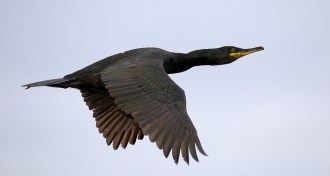 Environment
EnvironmentPrestige oil spill linked to drop in seabird chicks
European shag in colonies affected by the 2002 Prestige oil tanker spill produced fewer chicks than birds in oil-free colonies.
-
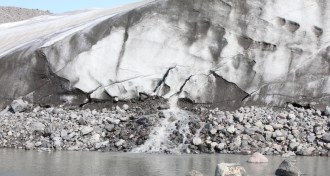 Climate
ClimateGlacial microbes gobble methane
While some bacteria produce methane in Greenland’s melting ice sheet, others may consume the greenhouse gas as it escapes.
By Beth Mole -
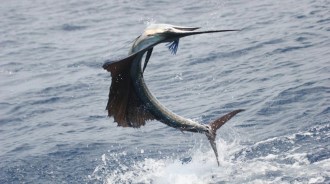 Animals
AnimalsSecrets of a sailfish attack
The large, long-nosed sailfish use their rostrums more like a sword than a spear to attack prey.
-
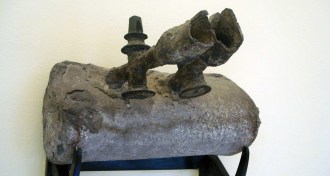 Environment
EnvironmentLead levels in ancient Rome’s water were high, but not toxic
Ancient Romans probably drank tap water with up to 100 times more lead than the levels found in local spring water.
-
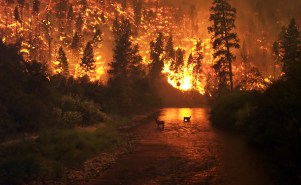 Earth
EarthSurge seen in number of U.S. wildfires
The number and size of wildfires in the western United States has steadily risen over the last three decades.
-

-
 Health & Medicine
Health & MedicineTriclosan aids nasal invasions by staph
The antimicrobial compound triclosan, commonly found in soaps and toothpaste, may help Staphylococcus aureus stick around.
By Beth Mole -
 Earth
EarthHuge space rock rattled Earth 3 billion years ago
An asteroid almost as wide as Rhode Island may have plowed into Earth 3.26 billion years ago, leaving a trace in South Africa’s Barberton greenstone belt.
-
 Climate
ClimateReef fish act drunk in carbon dioxide–rich ocean waters
In first test in the wild, fish near reefs that bubble with CO2 lose fear of predators’ scent.
By Meghan Rosen -
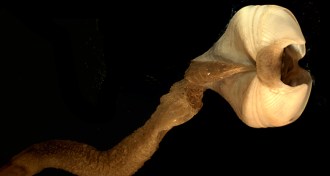 Oceans
OceansThe surprising life of a piece of sunken wood
Timber and trees that wash out to sea and sink to the bottom of the ocean hold a diverse community of organisms.
-
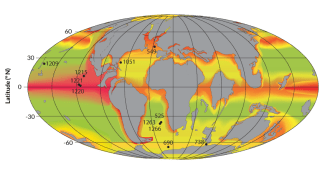 Climate
ClimateOcean bacteria may have shut off ancient global warming
Ocean-dwelling bacteria may have helped end global warming 56 million years ago by gobbling up carbon from the CO2-laden atmosphere.